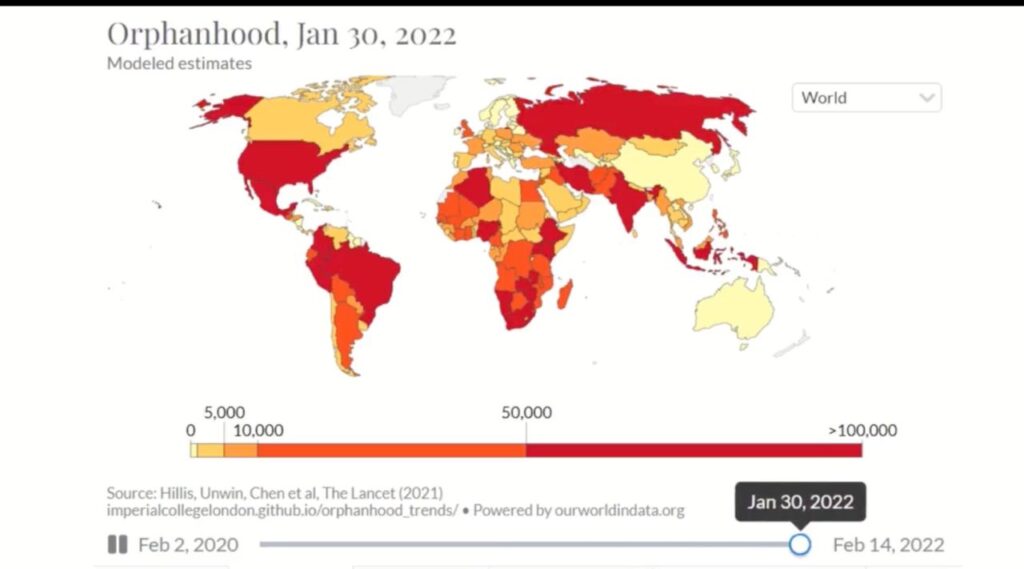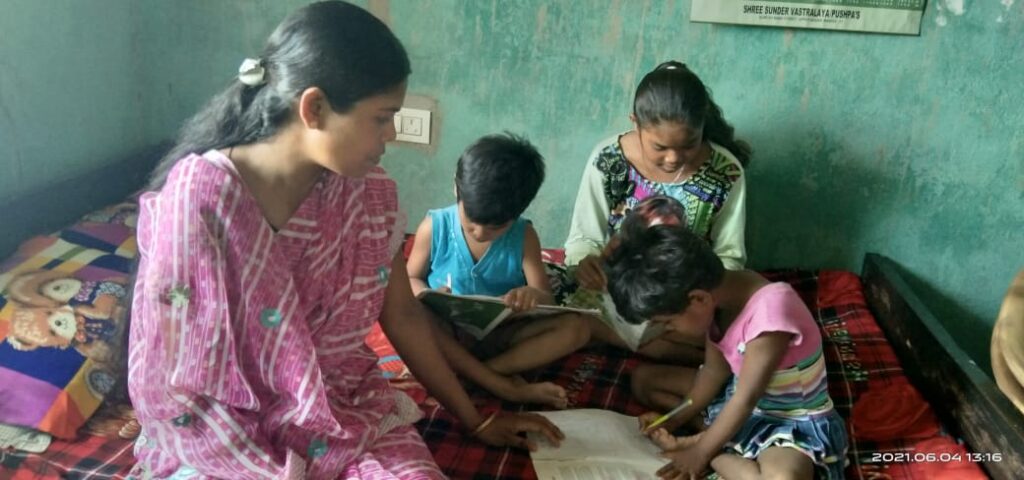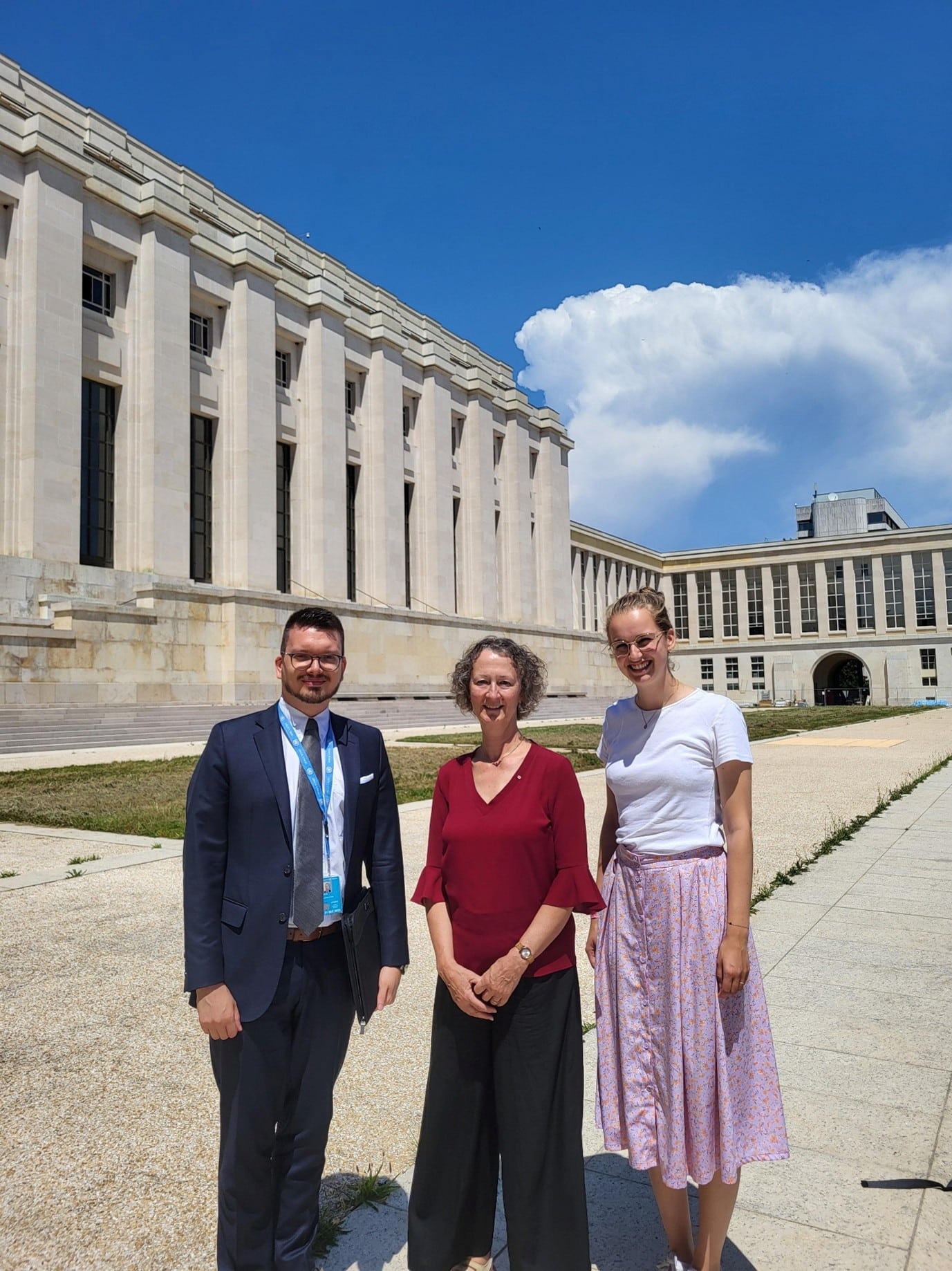Spanish Version: Las iglesias son llamadas a desempeñar un papel único en la respuesta a la creciente crisis de más de 7 millones de niños huérfanos debido a COVID-19
As the pandemic reaches its second anniversary today, a recently published report estimates that globally more than 7 million children have lost a parent or caregiver due to COVID-19. The World Evangelical Alliance (WEA) together with World Without Orphans (WWO) call for global and national pandemic responses to specifically include affected children as a priority, while also highlighting the unique role local churches can play in responding to the growing crisis.
The Lancet Child & Adolescent Health modelling report is based on studies by a number of national and international government agencies, universities, the World Health Organization, the World Bank, and non-governmental organizations, including WWO.

“We estimate that for every person reported to have died as a result of the COVID-19 pandemic, one child is left orphaned or loses a caregiver. That is the equivalent of one child every six seconds facing a heightened risk of lifelong adversity unless given appropriate support in time,” commented Dr. Susan Hillis, who served as lead author of the study as part of her role with the US Centers for Disease Control and Prevention (CDC) and is also a member of WWO’s leadership team. “Orphanhood does not come in waves; it is a steadily rising slope, whose summit is still out of sight,” she added.
Hillis calls for national COVID-19 response plans to support orphaned children through a three-pronged approach focusing on preventing the death of caregivers, preparing families that are safe and nurturing to support affected children through kinship care, foster care and adoption, and employing strategies to protect children from the risks of poverty, childhood adversity and violence. She pointed out that vast resources and efforts have been dedicated to vaccination and other preventative measures, while little to no funding has been allocated to caring for children bereft of parents or caregivers.
In addition to highlighting that the number of children who lost a parent or caregiver was approximately equal to the total number of deaths due to COVID-19, the report’s findings also revealed that 10 – 17-year-olds accounted for almost two-thirds of the children affected. Also notable is that in three out of four cases where children lost a parent, it was the father who died.
While not every country is affected equally and the needs of orphaned children and corresponding support services of governments may vary, local churches are uniquely positioned to respond to the specific issues in their neighborhoods and the wider communities. Following the Biblical call to care for widows and orphans (James 1:27), churches and believers can model the heart of the Father God who is a father to the fatherless and who sets the lonely in families. (Psalms 68:5-6)
“We encourage church leaders to read the report and prayerfully consider how the pandemic has affected families and children in their own context and what support they can offer. They can raise awareness on this issue and mobilize their congregations to reach out and proactively offer help,” said Rev. Dr. Rebecca Goropevsek who serves as Coordinator of WEA’s Children Network and is member of WWO’s Global Council.
“The issue may feel overwhelming but when church members come alongside those affected, they can help families and children with prayer, counseling and spiritual care, finding practical solutions to their immediate needs, and helping them access support services. There are also many resources available online, including those offered by WWO, that equip churches with the necessary understanding and tools to respond in practical and meaningful ways that can have a significant impact.”

Research suggests that the greatest positive effect can be achieved by supporting the family and relatives, so they can take care of the child, rather than placing them in institutional care such as orphanages. In many cases, there are relatives who could foster or adopt children who lost their parents or caregivers, but they cannot afford it financially. By putting efforts and resources towards family-based care rather than orphanages, many more children could be raised in a loving and trusted environment that offers them significantly better chances to flourish in the long-term.
“As believers, we can be the one for the one and the voice for the many,” Bishop Dr Thomas Schirrmacher, Secretary General of the WEA, commented. “We can be the voice by calling on our national governments to ensure that vulnerable children and families are not left behind but receive the support they need, so they can ensure that every child can grow up in a family environment.”
“At the same time, however, we can also be there for the one by identifying who the children are, so they do not remain hidden: we can talk to them and listen to their story and what they have gone through,” he said.
Schirrmacher recounted how he met with Kate whose father was a worship pastor who died of Covid last year when she was 16. She said: “I just want to be seen and understood. I want someone to look me in the eyes and ask how I am, like they really mean it and really care. I don’t want to keep feeling invisible.”
“Whenever we go to a memorial service or hear about someone who has passed away, are we as followers of Christ asking who these children are and how they are doing?” Schirrmacher asked, and added: “We can be the eyes, the ears and the heart of Jesus. We want to see them, hear them and show them that someone cares about their loss, and point them to the Lord’s all-sufficient comfort. We can be there to embrace the one child whose world has fallen apart.”
See also:
- Local Churches and Organizations Are Ideally Placed to Ensure that Children Who Have Lost a Caregiver to COVID-19 Receive the Support They Need – by Phil Green, WWO
- The Lancet Child & Adolescent Health: Global, regional, and national minimum estimates of children affected by COVID-19-associated orphanhood and caregiver death, by age and family circumstance up to Oct 31, 2021: an updated modelling study
- Imperial College London: COVID-19 Orphanhood Calculator (Globally and by Country)
- Global Reference Group on Children Affected by COVID-19: #0B4CB4
- CDC Global Health: Animated Orphanhood Heat Map
About World Without Orphans
Our mission as World Without Orphans is to call and equip national leaders to collaborate to solve their own nations orphan and vulnerable child’s crisis. Our vision is that every child would grow up in a safe and loving family, and fulfill their God-given purpose. We will see a world without orphans, when the church steps up to assure that very child grows up in a safe and loving family. The WWO Roadmap integrates the world’s best evidence, with the call of God through to Scriptures, to reveal the 4 essential foundations for making progress together, towards a World Without Orphans. For more information, visit worldwithoutorphans.org.
About the World Evangelical Alliance
Over two billion Christians in the world today are represented by three world church bodies. The World Evangelical Alliance (WEA) is one of those, serving more than 600 million evangelicals belonging to churches that are part of 143 national Evangelical Alliances in 9 regions. Launched in London in 1846, the WEA unites evangelicals across denominations for prayer, evangelism, mission, theological education, religious freedom, human rights advocacy and engagement in a wide range of social issues. It speaks with one voice to United Nations, governments and media in public or through behind-the-scenes diplomacy on issues of common concern to the Church. For more information, visit worldea.org.





Stay Connected